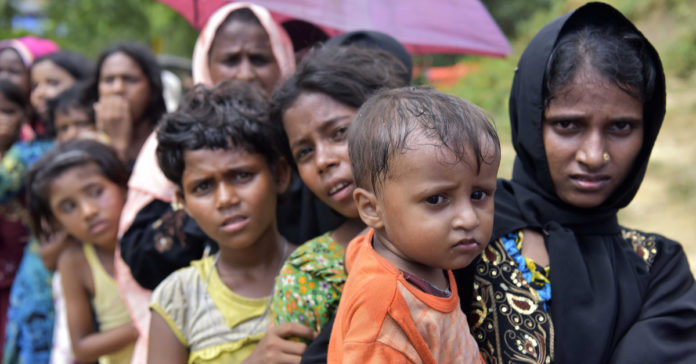Rohingya Muslim refugees in the U.S. and the UK are suing Facebook for $150 billion claiming that the social networking site failed to curtail hate speech, calls for genocide and annihilation.
The complaint was lodged in a Californian court on Monday and accused Facebook, now known as Meta, of materially contributing to the development and widespread dissemination of anti-Rohingya hate speech, misinformation and incitement of violence.
According to the complaint, the Myanmar military and its civilian conspirators used Facebook actively to organise and spread terror: “They escalated their brutal crackdown, carrying out violent acts of ethnic cleansing that defy comprehension. In the ensuing months and years, tens of thousands of Rohingya were brutally murdered, gang-raped, and tortured. Men, women, and children were burned alive inside their homes and schools…
“Family members were tortured, raped, and killed in front of each other. More than ten thousand lost their lives, while hundreds of thousands were brutalized, maimed, and bore witness to indescribable violence and misery that they will carry with them for the rest of their lives. Families were destroyed, childhoods were lost, lives were ruined, and entire communities were erased from the face of the earth,” the complaint read.
Tun Khin, President of the Burmese Rohingya Organisation UK, said: “We are seeking justice for the Rohingya people. This powerful global company must be held to account for its role in permitting the spread of hateful anti-Rohingya propaganda which directly led to unspeakable violence. Facebook turned away while genocide was being perpetrated – putting profit before the human rights of the Rohingya people.”
Noami Hirst, campaign leader at Global Witness, a rights NGO based in the UK said: “Big Tech needs to be held accountable for amplifying inflammatory, hateful content that can lead to real-world harm. Our own research found that Facebook’s recommendation algorithm directed users in Myanmar towards content that incited violence and pushed misinformation during the early and brutal days of the military coup. Court cases like these are critically important, as is legislation to help prevent this from happening again.”
Facebook has admitted that it didn’t do enough to stop its platform from misuse. Mark Zuckerberg said in his Senate testimony that: “we need to do more”, while Adam Mosseri, the company’s vice president of product management stated that: “we lose some sleep over this”.
Subscribe to our newsletter and stay updated on the latest news and updates from around the Muslim world!

Similarly, in a blog post titled “An Independent Assessment of the Human Rights Impact of Facebook in Myanmar,” Facebook wrote: “we weren’t doing enough to help prevent our platform from being used to foment division and incite offline violence. We agree that we can and should do more.”
The complaint further stated: “There was so little for Facebook to gain from its continued presence in Burma, and the consequences for the Rohingya people could not have been more dire. Yet, in the face of this knowledge, and possessing the tools to stop it, it simply kept marching forward…
“That is because, once Facebook struck the Faustian Bargain that launched the company, it has had blinders on to any real calculation of the benefits to itself compared to the negative impacts it has on anyone else. Facebook is like a robot programed with a singular mission: to grow. And the undeniable reality is that Facebook’s growth, fuelled by hate, division, and misinformation, has left hundreds of thousands of devastated Rohingya lives in its wake.”
The lawsuit also highlights specific posts that incite violence against Rohingya and Facebook’s failure to take them down. In December 2013, one user posted: “We must fight them the way Hitler did the Jews, damn kalars [a pejorative for the Rohingya].”
Similarly, in September 2017, another wrote: “These non-human kalar dogs, the Bengalis, are killing and destroying our land, our water and our ethnic people…. We need to destroy their race.”
In April 2018, another user posted, with a picture of a boatload of Rohingya refugees: “Pour fuel and set fire so that they can meet Allah faster.”
Even though the company has been warned about the proliferation of anti-Rohingya posts on its platform since 2013, it is alleged that Facebook failed to take timely and appropriate action.
In 2017, the Myanmar military along with civilians launched a violent campaign in Rakhine state in which an estimated 10,000 Rohingya Muslims were killed and more than 700,000 were displaced. The majority of the refugees fled to neighbouring Bangladesh where they still live in makeshift tents.






















